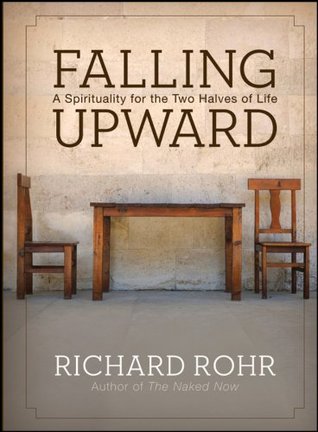More on this book
Community
Kindle Notes & Highlights
by
Richard Rohr
Read between
August 5 - August 11, 2023
Thomas Merton, the American monk, pointed out that we may spend our whole life climbing the ladder of success, only to find when we get to the top that our ladder is leaning against the wrong wall.
Our resistance to the message is so great that it could be called outright denial, even among sincere Christians. The human ego prefers anything, just about anything, to falling or changing or dying. The ego is that
part of you that loves the status quo, even when it is not working. It attaches to past and present, and fears the future.
Yet even the intelligence of animals is determined by their ability to change and adjust their behavior in response to new circumstances. Those who do not, become extinct.
We are not helping our children by always preventing them from what might be necessary falling, because you learn how to recover from falling by falling! It is precisely by falling off the bike many times that you eventually learn what the balance feels like. The skater pushing both right and left eventually goes where he or she wants to go. People who have never allowed themselves to fall are actually off balance, while not realizing it at all. That is why they are so hard to live with. Please think about that for a while.
Law and structure, as fallible as they often are, put up some kind of limits to our infantile grandiosity, and prepare us for helpful relationships with the outer world, which has rights too.
We are created with an inner drive and necessity that sends all of us looking for our True Self, whether we know it or not. This journey is a spiral and never a straight line. We are created with an inner restlessness and call that urges us on to the risks and promises of a second half to our life. There is a God-size hole in all of us, waiting to be filled. God creates the very dissatisfaction that only grace and finally divine love can satisfy.
This “something real” is what all the world religions were pointing to when they spoke of heaven, nirvana, bliss, or enlightenment. They were not wrong at all; their only mistake was that they pushed it off into the next world. If heaven is later, it is because it is first of all now. These events become the pledge, guarantee, hint, and promise of an eternal something. Once you touch upon the Real, there is an inner insistence that the Real, if it is the Real, has to be forever. Call it wishful thinking, if you will, but this insistence has been a constant intuition since the beginnings of
...more
promise, as when he tells the Samaritan woman that “the spring within her will well up unto eternal life” (John 4:14). In other words, heaven/union/love now emerge from within us, much more than from a mere belief system or any belonging system, which largely remains on the outside of the self.
Victor Frankl described this so well when he pointed out that some level of meaning was the only thing that kept people from total despair and suicide during the Holocaust. Humans are creators of meaning, and finding deep meaning in our experiences is not just another name for spirituality but is also the very shape of human happiness.
At this stage, I no longer have to prove that I or my group is the best, that my ethnicity is superior, that my religion is the only one that God loves, or that my role and place in society deserve superior treatment. I am not preoccupied with collecting more goods and services; quite simply, my desire and effort—every day—is to pay back, to give back to the world a bit of what I have received. I now realize that I have been gratuitously given to—from the universe, from society, and from God. I try now, as Elizabeth Seton said, to “live simply so that others can simply live.” Erik Erikson
...more
Your concern is not so much
to have what you love anymore, but to love what you have—
you are on course at all, your world should grow much larger in the second half of life. But I must tell you that, in yet another paradox, your circle of real confidants and truly close friends will normally grow smaller, but also more intimate. You are no longer surprised or angered when most people—and even most institutions—are doing first-half-of-life tasks. In fact, that is what most groups and institutions, and young people, are programmed to do!
Don't expect or demand from groups what they usually cannot give. Doing so will make you needlessly angry and reactionary. They must and will be concerned with identity, boundaries, self-maintenance, self-perpetuation, and self-congratulation. This is their nature and purpose. The most you can hope for is a few enlightened leaders and policies now and then from among those “two or three gathered in my name.” In your second half of


